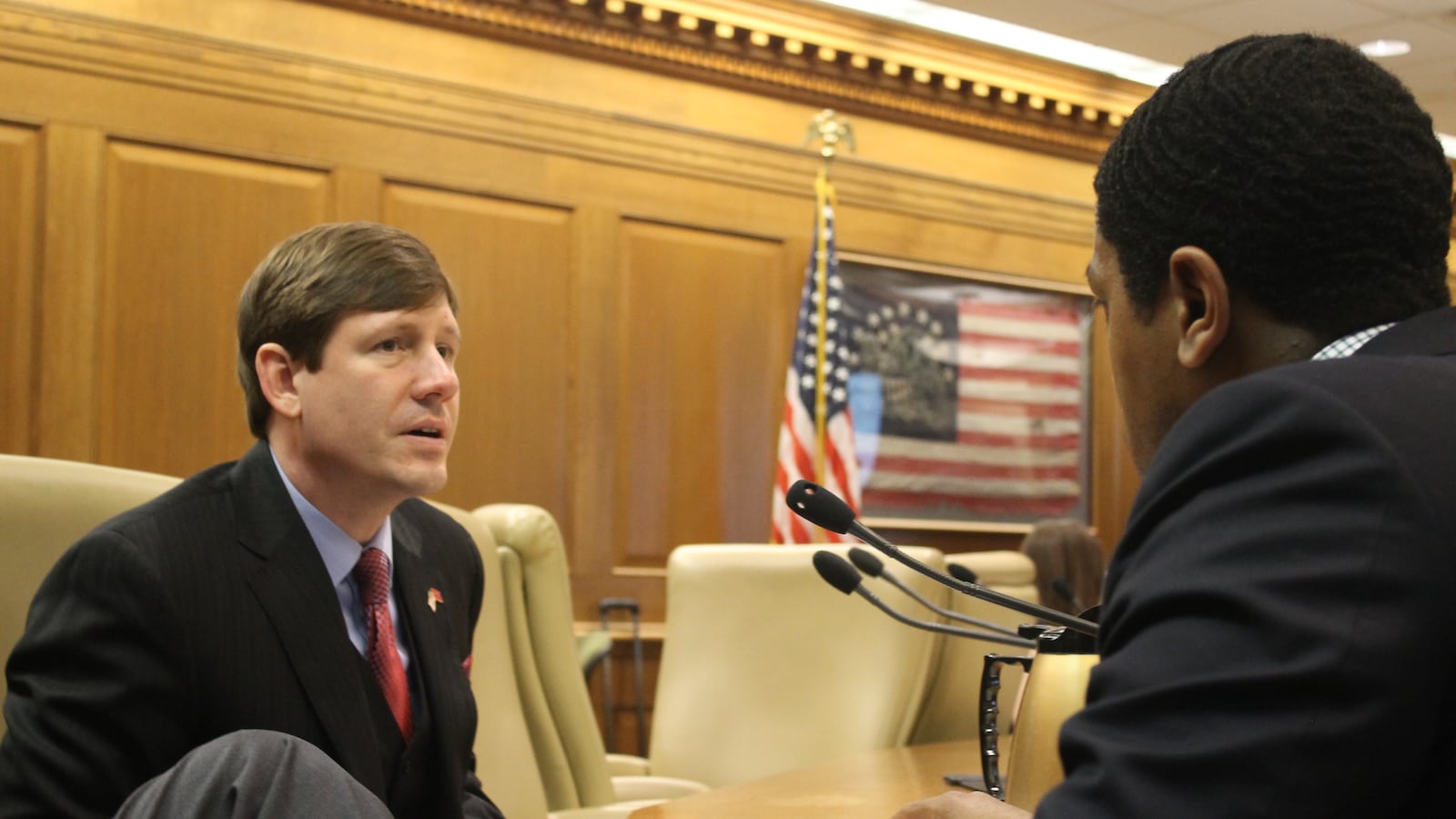Tennessee’s Republican lawmakers often push for local control — but many appear to feel differently when it comes to school vouchers.
A bill with momentum in the legislature would pilot tuition vouchers in Shelby County, despite opposition from the county’s Board of Commissioners, most of its legislative delegation, and numerous school boards across Greater Memphis.
That includes Germantown, home to Sen. Brian Kelsey, who is sponsoring the bill.
The proposal, which is carried in the House by Rep. Harry Brooks of Knoxville, would launch the five-year pilot voucher program in the fall of 2018 beginning with 5,000 students. The bill breezed through two legislative panels earlier this month and also advanced this week in a full House education committee stacked with voucher supporters.
The fact that local school boards are opposing vouchers isn’t surprising. Shelby County Schools stands to lose $18 million in state funding if a program starts, and other area school systems could have to surrender students and money, too.
But 13 out of 17 state lawmakers in the county’s mostly Democratic caucus either have consistently voted against vouchers or come out against the Memphis-specific proposal.
There’s also been passionate outcry from the county’s Board of Commissioners, which is the local funding body for Shelby County Schools and its six suburban school systems. Last month, commissioners passed a legislative agenda that opposes vouchers.
“This will decimate our public schools,” Commissioner Terry Roland said during the meeting. “With the amount of money and the way they want to administer this, this could kill our Millington school district. … There’s no way in the world I could support this.”
Commissioner David Reaves called vouchers “a direct assault on the Shelby County Schools” and promised to take the matter to court if the bill passes.
“None of the school systems in this county — not one municipal district, not one Shelby County school district — is for this bill,” Reaves said.
Voucher proponents argue that it’s time to try vouchers in Tennessee, which has developed a solid reputation for school reform in recent years. And starting with Shelby County makes sense, they say, given its large number of “priority schools” in the state’s bottom 5 percent and a desire for choices by some parents and advocacy groups. The proposed program is for five years, and then would be dropped, extended or expanded depending on what the legislature decides. The bill calls for the Tennessee Comptroller’s Office of Research and Education Accountability to assess the program’s results by comparing students’ test scores and growth scores.
Read details about the voucher bill here.
Trying out the state’s new and controversial education strategies in Memphis isn’t new, and many community members are offended by that approach. The majority-black city has the state’s highest concentration of low-performing schools and a deep history of intergenerational poverty.
Tennessee’s Achievement School District made Memphis the hub of its turnaround work, for instance, after launching in 2012. The state-run district took over dozens of low-performing schools there and now oversees 31 in the city. Leaders of Shelby County Schools say the ASD’s presence costs the local district tens of millions of dollars in annual funding.
Some lawmakers elsewhere in the state have said they wouldn’t support a statewide voucher plan but are open to passing one aimed at Memphis. That riles some Memphians.

“Everything is pointing toward ‘Not in my backyard, do it in Shelby County!’” said Mike Kernell, a former state legislator who is now a school board member for Shelby County Schools. “Here we go again, trying something else when we’ve tried our best to show that more resources for kids in poverty actually works.”
Tony Thompson, a lobbyist for Shelby County Schools, argues that it’s wrong for lawmakers to target the Memphis area if their own elected officials are against vouchers. “Would it be OK for the Shelby County delegation to impose its role on the Knoxville delegation?” Thompson asked.
Reporters Grace Tatter and Laura Faith Kebede contributed to this report.
Editor’s note: This story has been updated to show that the bill advanced March 21 in the House Education Administration and Planning Committee.

